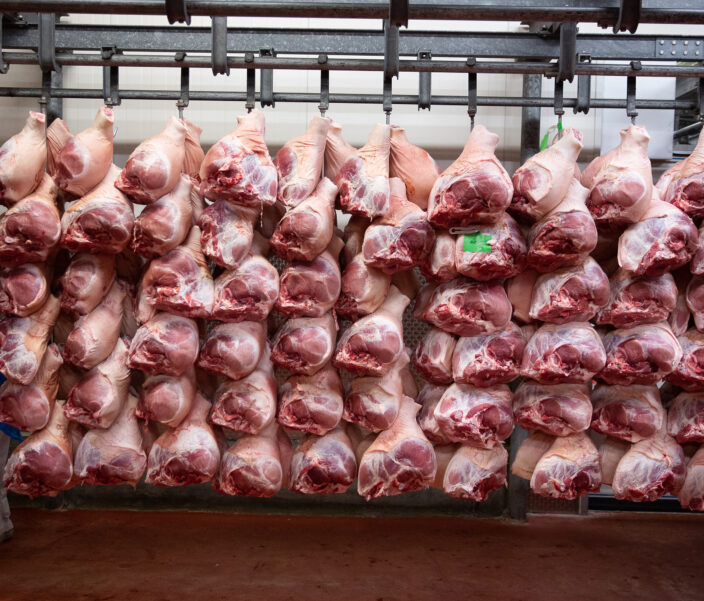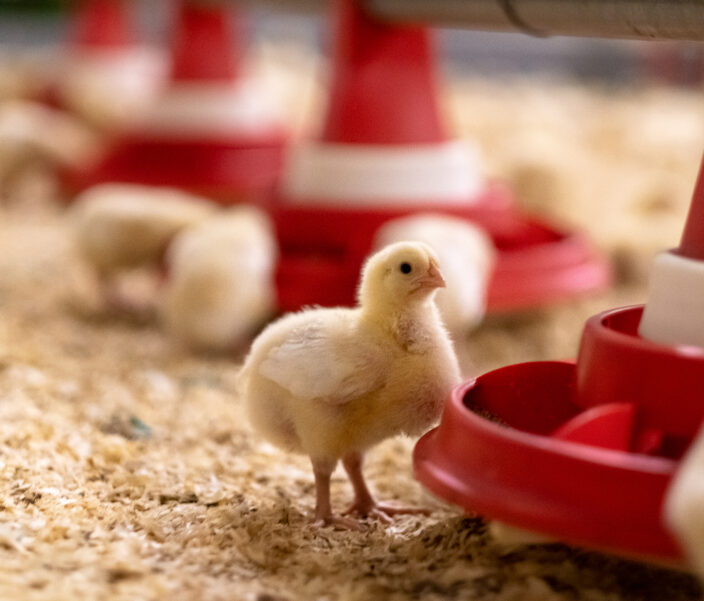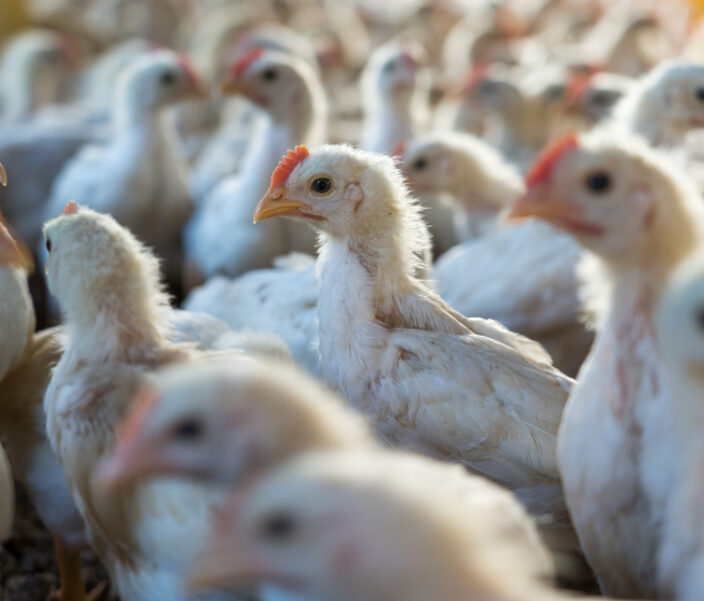Stopping the spread
of e.coli
E.coli issues occur when specific strains acquire the ability to survive outside the GIT and colonize other environments. We believe in a preventive strategy in order to limit carriage and spreading of this disease.
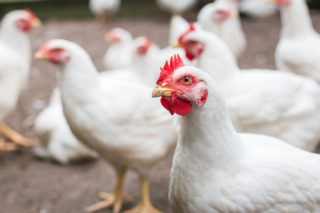
E. coli: An ever-present menace for poultry production
Escherichia coli is a commensal inhabitant of the digestive system of all farm animals, including poultry. The population of E. coli found in poultry increases along the gastro-intestinal tract (GIT) and reaches up to 106 CFU/g of faeces. In poultry, E. coli issues occur when specific strains acquire the ability to survive outside the GIT and colonize other environments. This can cause different problems going from respiratory problems, yolk sac infection, wet litter, peritonitis, … and can even lead to increased mortality. The related disease, referred to as Avian Colibacillosis, is an extra-intestinal disease that can affect broilers, turkeys, layers and breeders.
As such, Avian Colibacillosis is often considered as one of the most prevalent bacterial diseases in poultry and has an important economic impact.
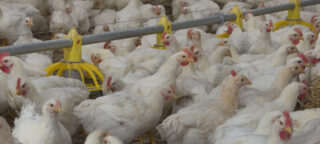
Prevention: key to limit the risk
Several approaches can be considered to tackle the issue of Avian Colibacillosis. Although also inhalation of the bacteria via the respiratory system can cause the disease, still the GIT plays an important role in the propagation of pathogenic E. coli strains in poultry houses, for example via contaminated faecal sheddings. Therefore, in poultry production a particular attention is required at all stages, from parent stock to commercial broiler rearing or egg production. Protecting the breeder flocks contributes to limiting vertical transmission and prevents associated mortality during the first weeks of life of broilers. In layers, healthy pullet flocks contribute to having a good hen quality at later stages, preserving production and hence economic profitability.
Therefore, Agrimprove specialists believe that the management of Avian Colibacillosis should tackle all steps of the production process, including preventive strategies in order to limit carriage and spreading. Medium chain fatty acids (MCFAs) have demonstrated great in vitro antibacterial properties with low MIC values (in an inhouse in vitro test mimicking the conditions in the poultry GIT) for E. coli limiting the carriage.
Combining the best suited MCFAs could result in a good preventive solution to stop spreading E. coli in poultry houses.
Solutions worth considering
Ready for improvement? Try one of our suggested solutions with a proven added value.
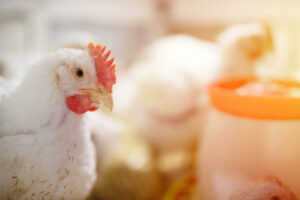
Your Agrimprove expert
Do you have a question or want personalized advice? Your Agrimprove expert is willing to help. Reach out directly or request to be contacted at your convenience.
Do you want to know more?
Leave us a message or contact your local Agrimprove expert.
We will get back to you with more detailed information.
